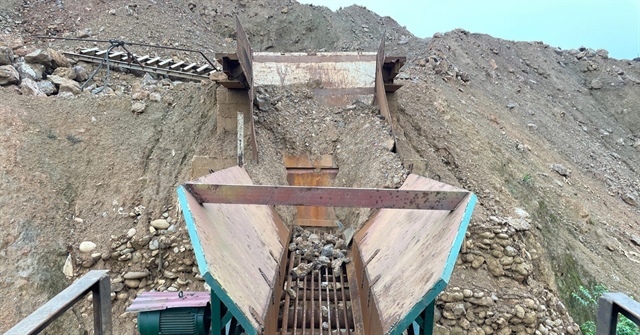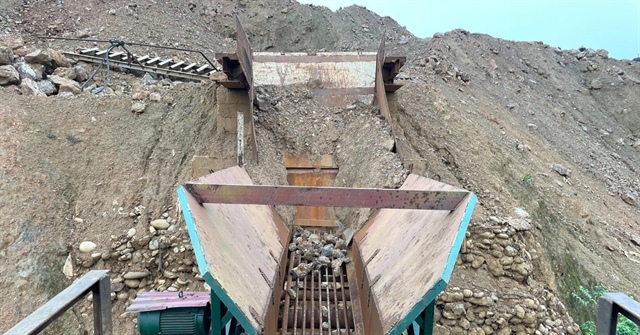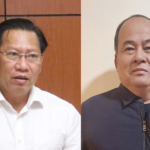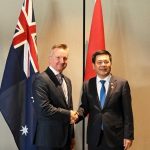The Illegal Rare Earth Mining Operation in Yen Bai: A Case of Mismanagement and Environmental Negligence
Vietnam’s Ministry of Public Security’s Investigation Police Agency (CIPA) has recently concluded its investigation into the illegal rare earth mining operations of Thai Duong Company in Yen Bai Province. The case has led to the prosecution of 27 defendants, including former Deputy Minister of Natural Resources and Environment, Nguyen Linh Ngoc, who is accused of violating regulations on state asset management, causing losses and wastefulness.
Doan Van Huan, Chairman of the Board of Directors of Thai Duong Joint Stock Group Company, faces charges for three offenses: violating regulations on mineral exploration and exploitation, violating accounting regulations with serious consequences, and causing environmental pollution.
Between 2019 and 2023, Huan organized the illegal mining of rare earth and iron ore at the Yen Phu mine, with a total value of over VND 864 billion. Over 10 million kg of rare earth concentrate (with an 18-20% TREO content) and more than 280 million kg of iron ore concentrate (a byproduct of rare earth mining and processing) were sold illegally, generating illicit profits of more than VND 736 billion.
The investigation revealed lax management and loopholes in exploration and mining permits, as well as a lack of oversight in the approval process for resource exploration and exploitation by competent state agencies. This allowed the perpetrators to exploit massive quantities of resources without reporting to the authorities and to sell them through unauthorized channels, reaping enormous profits.
 Idle machinery inside Thai Duong Company’s premises. Photo: Hai Phung |
The case also exposed weaknesses in the control of imported raw materials used for production. The company took advantage of this loophole to purchase domestically mined rare earth materials without proper invoices, process them into “rare earth oxides,” and declare them as products made from imported raw materials for export, thereby evading taxes. This scheme enabled the illegal export of substantial quantities of rare earth minerals.
According to current regulations, only rare earth oxides with a purity of 95% or higher can be exported. Achieving this level of purity requires significant economic resources and technology transfer agreements with developed countries. However, technology transfer in this field is challenging, and domestic technology has not yet met the required standards. As a result, companies with permits resort to makeshift assembly lines, unable to produce export-quality products, leading to illegal rare earth mining and sales, and ultimately, the squandering of mineral resources.
To improve state management of rare earth mining and processing operations, the CIPA recommends that competent authorities strengthen policies and regulations, particularly regarding exploration and mining permits and the utilization of mined rare earth resources for further processing.
Additionally, enhanced management, supervision, inspection, and investigation of exploration, mining, and mineral processing licenses are necessary to prevent similar incidents from occurring in the future.
The investigation also revealed the involvement of a Chinese national, Liu Dehua, who directly purchased rare earth concentrates from the Yen Phu mine and transported them to Hai Phong. Dehua rented land and warehouses to build a workshop, directed the processing of rare earth materials to increase their oxide content, and mixed them with chemicals to disguise their true nature before illegally exporting them. The value of these exports exceeded VND 7.8 billion.
Dehua’s actions constitute the crime of smuggling. However, he left Vietnam for China on September 24, 2023, before the case was initiated and the defendants were prosecuted. The CIPA has issued an international arrest warrant, but as it has not yielded results, the case against Dehua has been temporarily suspended until he can be apprehended and brought to justice.
T.Nhung
– 05:30 05/02/2025
Indictment Sought for Former An Giang Chairman and Vice-Chairman for Allegedly Taking Bribes from Businesses
According to investigative authorities, Tran Anh Thu, former Vice Chairman of An Giang Provincial People’s Committee, received bribes totaling over 961 million VND. Meanwhile, Nguyen Thanh Binh, former Chairman of the same committee, accepted 300,000 USD as a token of gratitude from a business entity.


















